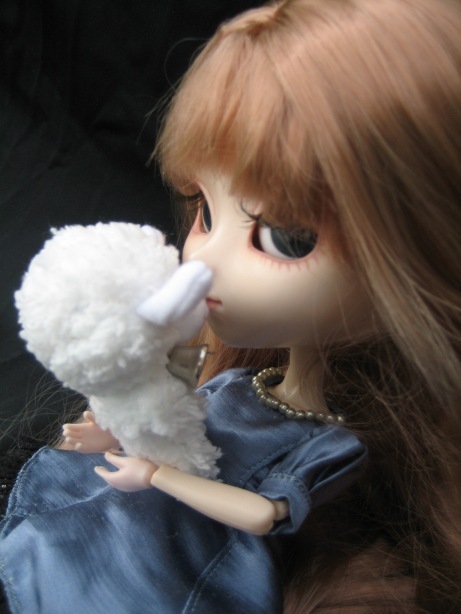The Maragtas legend explained that sometime between 1200-1250's; Ten (10) Malay Datus together with their families, households and subordinates fled the tyrannical rule of Makatunaw, the Shri-Vijaya Sultan of Bornay (Borneo).
Led by Datu Puti, the Sultanate Minister, they landed in the Island of "Aninipay" or Panay. They bartered their gold and jewelries with the local Ati Chieftain Marikudo for the lowlands, plains and valleys of the Island they called "Madya-as" or Paradise. The land where time began; the birth of the Ilonggo Nation and the cradle of ancient Filipino civilization.
For about 300 years before the coming of the Spaniards, the Ilonggos lived in comparative prosperity and peace under an organized government, the "Katiringban et Madia-as" or the Confederation of Madya-as and with such laws as the Code of Kalantiaw.
Nota Bene: Period of emigration was later confirmed to be during the early part of the 1400's as recorded in the ancient Chinese Ming Dynasty Chronicles. (See article below)
=========================================================================
The Maragtas Legend and the Chinese Ming Dynasty:
(By: dinggol a.divinagracia- Sept.25,2006)
------------ --------- --------- --------- --
The inclusion in the ancient Chronology of the "Chinese Ming Dynasty and Islamic Influences" by Guo Zhongli about the saga of Bornean Datu Putih, Code of Kalantiaw and the Maragtas Code of Sumakwel, are like drops of rain on a hot summer day.
------------ --------- --Likewise, this is a shot in the arm to believers of their glorious past & noble heritage.
------------ --------- -
According to Ming Chroniclers:
"...1372 AD -Sabah Journal reported a Ming envoy, Prince Sahib ul-Kahar Ong Sum-ping to have sailed through the Sulu Archipelago to Kinabatangan in North Borneo and established a permanent Chinese foothold in that vast uninhabited island...."
------------ --------- -"...1390 AD - Srivijayan Raja Baguinda, a minor ruler of Minangkabau, arrived in Sulu from Swarna Dwipa and founded the town of Bwansa in Jolo Island;...."
------------ --------- -Hypothetical analysis:
With the passage of time, inter-marriages and the relationships between neighboring islanders brought about the contemporaries of Sri-Vijayan Ruler Sultan Makatunaw (or whoever his name), Datu Putih and the Bornean datus who later fled Bornay and landed in Panay in the early 1400's. (Not between 1214-1250 as earlier believed)
------------ --------- --------- --------- ----We noted the following in contradiction viz-a-viz our contentions:
------------ --------- --------- --------- ----
According to Ming Chroniclers:
"...1433 AD - A Seven-Datu-Council codified the Code of Kalantiaw (by Kalantiaw) and the Maragtas Code (by Sumakwel) for the people of Panay Island; Three Adatus from the original ten (10) who came to Panay left for Batangas and Mindoro; Datu Putih was one of them but eventually returned to North Borneo from where no trace of him was found...."
------------Our Contentions:----------- --------- ------ Ming Dynasty Chroniclers:
1) The name: Datu Puti ------------ --------- ---------Datu Putih
2) Landed in Panay: middle 13th Century----- -Early 15th century
2) 3-datus remained 7 left for luzon------- --------7-datus remained 3 left for luzon
4) Reached Batangas & explored luzon------- -Reached Mindoro, Batangas & explored Luzon
5) from Batangas, settled & died in Sulu-------Back to Borneo with no trace thereafter
------------ -
"Astana Putih" - present seat of the Royal Sulu Sultanate at Umbal Duwa in Indanan, Jolo Island in the Tausog Region of Sulu could have been named after Datu Putih.
------------ --------- --------- ----We are inclined to believe the ancient Chinese Ming Dynasty recorded chronicles because of the confirmed two points early emigration to the Philippine archipelago, also above-cited.
------------ --------- --------- ----Be that as it may, Pedro A. Monteclaro painstakingly created a legacy to all his "Kasimanwa"--- a guide for future generations; notwithstanding attempts of distortions by others to discredit his efforts.
------------ --------- --------- ---The "Maragtas Legend" shall forever be in the minds and enshrined in the hearts of Ilonggos, wherever they may be...a nostalgic memory...of a perceived myth that became a legend ...and the legend that turned out to be the history of a proud and noble People...of the once great Ilonggo Nation!
===========================================================================ANG MGA KALIWAT NI “DATU PUTI"
(ni: dinggol a. divinagracia - Sept. 1, 2006)
-------------------------------------------------------
Sadto nga mga panahon, sang ang “Aninipay” ukon Isla sang Panay nabahin na sa mga tribu sa pag pamuno nanday Datu Bangkaya ang Akean” (Aklan & Capiz); Datu Paiburong ang “Irong-Irong” (Iloilo) kag sa kay Datu Sumakwel naman ang “Hamtik” (Antique); ang tribu iya ni Datu Puti kag sang iban pa, nag pasad puluy-an sa “Araut” (Dumangas) malapit sa pampang sang suba nga indi man malayo sa dagat nga naga atubang sa Isla sang “Himal-os” (Guimaras).
-------------------------------------------------------Nag ligad ang mga tinuig, ang apo ni Datu Puti ang ngalan Raja-Mun upod ang iya sakop nag balhin sa lugar nga madamo ang tanum nga putat kag ila gin hingadlan “Kaputatan” (Pototan). Apang ang iya guid suod nga bugto ngalan si Raja-il nag pabilin sa “Araut” (Dumangas) sang ang mal-am nga Apoy kag anum ka Datu upod iban nga sakop liwan nga nag bugsay sang ila mga “Balanghai” padulong sa “Selorang Lusong” (Luzon) kag sila naka abot sa pampang sang daku nga suba didto sa “Taal” (Batangas).
-------------------------------------------------------After partitioning "Aninipay" or the Island of Panay which they called "Madya-as" or Paradise, among the tribes under Datu Bangkaya, Paiburong and Sumakwel--- the exit point of Datu Puti and the remaining tribes after deciding to sail farther north towards Luzon was the Malay settlement at the banks of Araut (Dumangas) River.
------------------------------------------------------- While some of his kinsmen accompanied him, others opted to remain in Araut... finding the place rich .. fertile soil and with abundance in marine products. Years later, one of his Malay grandson Raja-Mun, (Datu Ramon-evidently a convert) left Dumangas together with his family and settled in "Kaputatan" what is now the Town of Pototan in Iloilo. While his closest brother Raja-il and others stayed behind.
------------------------------------------------------- Historians believe that the present Batanguenos are also descendants of Datu Puti and the other Bornean Datu who later left the Island of Panay and set up the first Malay settlement at the mouth of Taal (Batangas) River.
------------------------------------------------------In the year 1570, Kapitan Juan de Salcedo -- grandson of the "El Adelantado" Don Miguel Lopez de Legaspi, as second in command to Spanish Conquistador Martin de Goiti, together...explored the coast of Batangas on their way to "Maynilad" and came upon the Malay settlement at the mouth of the Taal River and in 1572, the town of Taal in Batangas was founded.
-----------------------------------------------------Undoubtedly, before Datu Puti -- the Shri-Vijaya Sultanate Minister went back to Bornay (Borneo) to face uncertain fate, his seeds were planted along the banks of Araut (Dumangas) River in Iloilo; Taal (Batangas) River in Southern Luzon and the most logical route back to Bornay.... via the Tausog Region where early Malay settlements were established in Mindanao.
-----------------------------------------------------
Therefore, the Ilonggos, Batanguenos and Tausogs have direct bloodline from Datu Puti. And that was long before the Portuguese Ferdinand Magellan and the Spanish Conquistadores Don Miguel Lopez de Legaspi, his grandson Kapitan Juan de Salcedo and Martin de Goiti came into the picture.
------------------------------------------------------ Here's excerpt from article; A Rejoinder: The Ilonggo Nation Movement "League of Filipino Nations" at: http://www.ilonggo-nation.8k.com
------------------------------------------------------
“. . . f) THE SOUTHERN TAGALOG NATION; To include both CALABARZON and MIMAROPA? -The first "Tagalog Nation" came into being when the group of Datu Puti settled the fertile banks of Batangas river (ilog). He left Panay Island to be ruled by Datu: Paiburong, Bangkaya and Sumakwel. Datu Puti, a Shri- Vijaya Sultanate Minister of Bornay (Borneo) went home to face uncertain fate.
------------------------------------------------------Left behind to explore Luzon and the remaing islands were the six bornean tribes of Datu Dumansil, Dumalugdog, Balkasusa, Paduhinog, Balinsusa, and Lubay. Many great Filipino Patriots and Heroes descended from these equally great ancestors. Among them, Dr. Jose P. Rizal considered "The Pride of the Malayan Race" . . . .”
=====================================================================================
The Case of Malay Datu Puti, et al...The Verdict: A Hoax ...(KUNO!)
(By: dinggol a. divinagracia - september 15, 2006)
Preface:
One hundred sixteen years ago today, September 15, 1890 --the fifth and last chapter of an essay was published in "LA SOLIDARIDAD". The title "THE INDOLENCE OF THE FILIPINOS'. The writer---Dr. Jose P. Rizal, a filipino reformist--- eventually became the Philippines National Hero
-------------------------------------------.This article is written as a tribute to The Man of many talents, now considered as the "Pride of the Malayan Race".
--------------------------------------------------------------------------------------Likewise, this article is written with malice towards none but with due respect to the following to wit:
-----------------------
1- The Scholars and Historians who had departed:
a) William Henry Scott -an American Historian who in 1968 started it all.
b) Fr. Horacio de la Costa,S.J.-first Filipino Provincial General of the Jesuits.
c) Teodoro Agoncillo -filipino nationalist at par with the likes of Renato Constantino.
d) Gregorio Zaide -Notable author of many Filipino History School Books.
------------------------
2- My friends and relatives who are in any way connected with the Clergy.
------------------------
3- And to all the "CONVERTS" of afore-mentioned foreign historian.
------------------------------------------------------------------------------------
Excerpts from article: The Maragtas Legend by William Henry Scott:
( http://www.mts.net/~pmorrow/marag_f.htm )
The Legends of Maragtas:
The stories known as the Maragtas are legends that may have been based on actual events in the remote past. They are about the ten (10) datus or chiefs who escaped the tyranny of Datu Makatunaw of Borneo and emigrated to the island of Panay..."
------------------------Remarks: Mr. Scott did not discount the possibility as to its veracity.
------------------------------------------------------------------------------------
Pedro Monteclaro's Maragtas:
Even though these legends have been known for generations, the word maragtas itself was unknown until it was used as the title of a book by Pedro Alcantara Monteclaro in 1907...
----------------------Monteclaro regarded legends as an important part of Visayan heritage so he collected the various stories of the elderly of Panay and published them in his Maragtas..."
"...A large part of Maragtas appears to be based on a work written in 1858 by Fr. Tomás Santarén, and published in 1902 under the title Historia de los primeros datos. M4 It was a translation of one document of the mid 1800's and another older document..."
----------------------------Remarks: WHAT'S in a NAME?... he could have used the words "Istorya kang Aninipay" or "Sugilanon sang Panay" or whatever.. what's the big deal?
--------------------------------Perhaps these ten datus had different names...and not Puti, Bangkaya, Sumakwel, Paiborong, etc.; the bone of contention is that these Malays peaceful emigration preceded the Spanish brutal conquest of Panay.
--------------------------------At least Monteclaro has the tenacity to respect and consult "Mga Mal-am kag mga Katigulangan" of his time.
--------------------------------
Fr. Tomas Santaren, fathered a child in San Joaquin, Iloilo whose son became an illustrious Ilonggo Physician, married to my close elder cousin who knows her family tree like the palm of her hands.
-------------------------------------------------------------------------------------
Dr. Henry Otley Beyer:
The misconceptions surrounding Maragtas were further reinforced when even the highly respected historian, Dr. Henry Otley Beyer called it a prehispanic document. In Philippine Saga which he wrote with Jaime C. de Veyra in 1947, he mentioned a manuscript from Panay known as Maragtas and "the ancient writing in which it was originally inscribed". M7 Then in his Outline Review of Philippine Archaeology of 1949 he wrote the following:
------------------------------A remarkable ancient document known as the "Maragtas," dating probably from about 1225, was preserved in Panay and transliterated into romanized Visayan in the early Spanish days. M8
-----------------------------Remarks: Surely--- findings and opinions of the more credible and highly respected world renowned historian and archaeologist with the caliber of Dr. Henry Otley Beyer holds more ground.
----------------------------
Moreover, Jaime C. de Veyra, a Waray of Leyte whose Ilongga wife Sofia Reyes de Veyra were both notables during their time.
---------------------------------------------------------------------------------------The Verdict on Maragtas:
Maragtas was finally placed in its proper perspective as a book of legends rather than historical fact in 1968 by William Henry Scott. For his doctoral dissertation at the University of Santo Tomas, Scott made a painstaking investigation into all the sources of information about the Philippines before the coming of the Spaniards.
----------------------------Rather than merely plagiarizing past historians, Scott examined the original documents and searched archives and museums the world over for supporting documents and artefacts..."
---------------------------------Reference:
A Historian dies, but his story lives
by Joel R. Dizon
EDITORIAL [Gold Ore, Oct. ?, 1993]
William Henry Scott, renowned historian who authoried 15 books in Philippine history including The Discovery of the Igorots, is dead. He was 72 years old....
In it, Scott capsulized 18 years of work, faithfully following a cold trail of yellowed parchment records in some of the most obscure dustbins of history in the world: the Dominican Province, the Augustinian archives in Villadolid, Spain, the archives of the Indies in Seville and the Archivo Historico Nacional in Madrid..."
-------------------------------Remarks: Relying mostly on evidence, documents concocted by self-serving chroniclers, some frayles of dubious origin, who together with the Conquistadores went on world rampage of plunder, rape, massacre and land grabbing using the sword and the cross in the name of GOD! and KING! to me --- is objectionable!.
-------------------------------------------------------------------------------------Panel of Filipino Historians:
Scott successfully defended his dissertation before a panel of eminent Filipino historians, some of whom had formerly endorsed and promoted the erroneous facts of Philippine history. The panel included Teodoro Agoncillo, Horacio de la Costa, Marcelino Forondo, Mercedes Grau Santamaria, Nicholas Zafra and Gregorio Zaide.
----------------------------
Scott's meticulous research was published in 1968 in his book Prehispanic Source Materials for the Study of Philippine History and since then no historian has contested his conclusions. M12
------------------------------------------Remarks:
Teodoro Agoncillo - We have yet to see copy of his position on this controversy.
Horacio de la Costa -member of the Jesuitic heirarchy
Gregorio Zaide -continued to include information from Maragtas in his works.
---------------------------
But who are these three supposedly eminent Filipino historians. Will somebody tell me please! Marcelino Forondo; Mercedes Grau Santamaria; Nicholas Zafra
------------------------------------------------------------------------------------The Result of Scott's Discoveries:
Most continued to reprint their old texts while others wrote new books that still contained the old mistakes. Take for example this quote from Ang Pagsulong ng Pamayanan (1981):
--------------------------------Maragtas' Code is the premier example of written law and it has been considered the oldest because it was in effect from 1250. M13...
-------------------------------Jose Villa Panganiban used Maragtas to trace the origin of the Tagalog language in the preface of the very popular English-Tagalog Dictionary by Fr. Leo James English in 1965. M14 To this day it remains unrevised in spite of many reprintings.
------------------------------Even one member of Scott's dissertation panel did not appear to be eager to set the record straight. Gregorio Zaide continued to include information from Maragtas in works such as Pageant of Philippine History in 1979, History of the Republic of the Philippines in 1983 and Philippine History 1984...
------------------------------Postscript:
To this day ignorance and misunderstanding of the true nature of Maragtas is still prevalent throughout Philippine society even among its highest institutions and organizations. Evidence of this can be seen in the following list of web sites:
------------------------------------Supreme Court of the Philippines
Department of Education, Republic of the Philippines
Governor's Office, Province of Antique
Mayor's Office, City of Iloilo
Madya-as Heritage Foundation Inc.
Save Madya-as, Save Panay.
Akaenon.Com
Confederation of Madyaas.
------------------------------------------------
Remarks:
Not only the highest Court of the land and the Philippine Educational heirachy ignore this misconcepcion propagated by Henry William Scott; but still many, many more respectable institutions, groups and enlightened citizenry.
===========================================================The Indolence of the Filipinos
English translation by Charles Derbyshire. The article by José Rizal, originally written in Spanish, was published in La Solidaridad in five installments, from July 15 to September 15, 1890.
---------------------------------Part-III
"...Wherefore, Gaspar de San Agustin says: "Although anciently there were in this town of Dumangas many people, in the course of time they have very greatly diminished because the natives are the best sailors and most skillful rowers on the whole coast, and so the governors in the port of Iloilo take most of the people from this town for the ships that they send abroad . . . When the Spaniards reached this island (Panay) it is said that there were on it more than fifty thousand families; but these diminished greatly . . .
------------Part-IV
"...Speaking of Ipion, in Panay, Padre Gaspar de San Agustin says: "It was in ancient times very rich in gold . . . but provoked by he annoyances they suffered from some governors they have ceased to get it out, preferring to live in poverty than to suffer such hardships." (page 378)
-------------------------------- For some time the friars have deceived many by making them believe that if these plantations were prospering, it was because they were under their care, and the indolence of the natives was thus emphasized; but they forget that in some provinces where they have not been able for some reason to get possession of the best tracts of land, their plantations, like Bauan and Liang, are inferior to Taal, Balayan, and Lipa, regions cultivated entirely by the natives without any monkish interference whatsoever...."
-------------------------------Remarks:
Evidently, descendants of these early Malay Datus abounded in "Araut" or Dumangas in Iloilo and "Taal" in Batangas as contained in my article---The Descendants of "Datu Puti" which is in contradiction to Mr. Scott's theory but conforms with Dr. Jose Rizal' essay.
-------------------------------------------------------------------Epilogue:
I wonder how this retired lay missionary of the Episcopal Church from New Jersey USA, in a short span of only nine (9) years since his 1954 arrival in the Philippines was able to twist the minds thereafter, of some people to forget their glorious past and noble heritage.
----------------------------Reminds me of a court trial scene in a movie of long ago. "Shake hands with the Devil"... the setting was Ireland. Charged for treason, the accused freedom fighter was asked if she has anything to say before the verdict. And she said: "What is an English Judge doing in an Irish Court?"
===============================================================BEHIND THE CLOUDS OF MADYA-AS
(By: dinggol a. divinagracia - October 18, 2006)
------------ --------- ---------
Quemadura! quemadura! los expedientes de los indios..ahora! --- Burn! Burn! the records of the indios.. right now!--- these cruel orders, still echoes beyond the graveyards of the Aztecs in Mexico; the Incas in Peru; the Mayas of Central America and yes! in our own native land. --- conquered and subjugated by the conquistadores with the sword and the Cross during their worldwide rampage of plunder, rape, massacre and land grabbing in the name of GOD! and King!
------------ --------- -Even today, the deafening silence of these harsh "palabras" still lingers in the fragile mind --- perhaps senile memories of their descendants "Ang katigulangan kag mga mal-am" or common old folks: like Agurang Omong of Dumangas; Lola Pistang of Pototan and others in Panay; Papa Osing in the hinterlands of Negros; Apoy Cipriano of Pangasinan; Manong Miguel of Batangas; Tioy Enteng of Tayabas and others-- the evidence of their ancestors existence were destroyed--- turned into ashes and lost in the sands of time.
------------ --------- --What a pity! --"daw sa matulo ang akon luha, kag ang akon luha maga hibi pa".---Que barbaridad!!
============ ========= ======================================
More on the Maragtas in Kinaray-a
More on the Maragtas in Kinaray-a
(Ni: Benjie Estuche - Oct. 18, 2006)
----------------------------
Ang mga kamal-aman kang mga erehes nga puti nga gusto mag-sagop kang lenguahe nga kinatsila paagi sa pagsagop kang lenguahe ni Datu Sumakwel nga mga pari o frayle nga amo ang nagsaylo sa kinatsila kang mga maragtas kag kasaysayan kang aton pungsod, banwa o barangay dapat nga pasalamat naton kag himu-on nga baganihan o ideklara nga santo.
----------------------------Ang guwa nga sila pa karon ang balasulon kay ginsulat nila ang mga ila nabati-an nga kasaysayang sang isa ka pumuluyo kag pungsod. Katulad ni Fra. Pavon kay sagi tana ka abay-abay nga magsulat parte sa anang bungang-isip lamang kag parte sa "blue" nga si "Kalantiaw."
---------------------------Kahapos lang ang maghambal nga "sunugon" ang mga libro kon sikwahe sa aton nga palamatin-an kag igdulongog kon ang imo nga mga katigulangan naanad ron karan nga pangginawi. Ginhimo ran nanda sa South America kag sa Europa kag rugyan man sa Pilipinas nga ginpanunog ang mga libro nga hindi nanda mauyunan.Kang matak-an ron sanda ka lantaw ka aso kang nagadababa nga mga libro, ang mga nagsulat kang among mga libro ruman ang andang ginlitson. Panahon kang Inquisition nga sa diin ang mga katsila amo ang masupog nga magpalapta halin kay Fra. Domingo Aguilar paadto sa mga Jesuito.
-------------------------Si Inday Sonia tungod nga nahadlok nga masunog ang kalag 'ya sa impierno nagbaliskad kang sinulatan kang anang Tatay kay tungod sa posting ni Toto Kenneth. 'Gakurog atay ko, Pareng Dinggol!
-------------------------Aber, Toto Kenneth, ipabalhag man ang bag-o nga revision kang kasaysayan kang Pilipinas, word for word, nga nagustohan mo. Atong gin-cite ko sang 1999 gin-imprenta, 7 pa lang ka tuig nga nagligad kag ginabalhag para sa mga kabataan sang kalibutan. May isa pa ako diri nga kompilyasyon sang mga kasaysayan sang mga marinero printed and published by Barnes and Noble in 1994, ISBN 0 88029 907 X, copyright in 1988 by Brandt Aymar, "Men at Sea, The Best Sea Stories of All Time" waay labot ka ana ni Pareng Goyo kag ni Inday Sonia.
----------------------------Ang URC nga gingamit ni Pareng Eking high tech tana ran kag amo ran ang gin-usar sa pelikula nga "Click" kag maskin ano mo ka pitik ang rewind amo man angud nga eksena ang nagabalikbalik sa imo Plasma TV o TiVO screen. Ang akon napanubli ko kay Lolo Indo Monteclaro kag kay Lolo ko Don Diego Tamook, mga isganan kang primer distrito kang Iloilo. Amo ran ang kinahanglan kang SOLFED agud nga masalbar nanda ang lenguahe kang Ilonggo, Binisaya kag Kinaray-a kang sa sagad nanda ka esplika sa in-English kag Kinatsila kag masanagan sanda sa mga dapat nanda nga orobrahon. Ugaring kay naanad tinyo nga kon daw mapierde gani kamo sa tinuba nga sugilanon kag sa seryoso man nga pagbanggi-anay kang mga tinaga, dayon ninyo kuot ka posporo o Zippo.
-------------------------------Daw sa mga ladrones nga mga pari katong una nga amo man ang gina-obra kang andang mga initi tulad sa sagad suspende kang mga nagakontra kananda halin kay Agurang Toto Roding Ganzon kang tana ang Alkalde sa Iloilo tubtob kay Heneral Jojo Binay ka Makati.
-------------------------------Samtang ang taytay sa Barangay Songsongon sa Igbaras hindi gali mapatindug pa kay naghambal si Inday Janet Garin nga wara masulod sa General Appropriations Act o Budget. Agurang Dinggol, hindi timo kakita ka diputada nga parehas kaguwapa kang amon sa 1st District, umagad ni Toto Oca, kag maaram pa. Pero, kon kis-a nagalipat man kita nga may ginatawag nga Supplementary Budget man nga ginapasar. Basi puwede tana nga ma-supplementary ta lang, Inday Janet? Kay man ang hinablos lo nga si Mayor James Esmeralda day nadabukan ron ang anang buli kag atat-na-atat ron nga mapatindugon kang taytay ang suba.
---------------------------------Labay man takon, Pareng Dinggol, rugyan sa suba kang Songsongon, ang Tangyan River, nagatimpasaw si Lolo Indo kag marigos kang una kay marayo ron 'to ang pito ka bubon nga ginpakutkot ni Datu Sumakwel para sa pito na ka asawa sa suba kang bukid kang Bukari sa Leon boundary kang Cabatuan marapit sa bukid kang Agua Colonia sa Barangay Kamandag. Man, Pareng Dinggol, waay man ta nagasugid pero nakaparigos man takon 'to kang-una sa isara ka bubon kag ayawan takon ka salom kag pangita lang daad maskin isara lang katong 7 ka asawa ni Datu Sumakwel.
------------------------------Ang natingalahan ko lang nga kon paano maka-asawa kang pito ang tauo nga suno sa mga kaigsoonan ta sa SOLFED waay gani mag-exister. Nakita ko ang isara ka anang asawa nga nagahalay kang anang 2-piece bathing suit sa sanga kang pine tree katong 1975 kang magtukad takon rugto. Ginpa SLO-MO ko pa gani ang akon URC agud nga masaboran ko gawa ang maayad-ayad nga scenery. Ugaring kay ti hambal ni Inday Sonia Zaide kag ni Pareng Iscott mo bungang isip lang 'to. Seguro murto lang 'to o epekto kang biti-biti. Parehas seguro ni Wakik kag ni Pareng Eking.
-----------------------------Sa liwan naton nga pagbalik, Pareng Dinggol! Kabay nga ang mga babaylan kang Isla kang Panay magbugay kanaton kang maayad-ayad nga adlaw!
-----------------------------Apoy Amin ron ang akon ngaran agud nga hindi masal-an nga tirorista! (Ang nagapaniro bala ka maya!)
==================================================================




















2 comments:
I'm come from North Borneo (Sabah). The only Malay tribe in North Borneo is teh Brunei and Kedayan, but the kingdom of Brunei build by the ancient Dayaks tribe such as the Kelabitic and the Dusunic (Bisaya) tribal group.
The Brunei Sultanate only begin in 16-century. The historical Alak Betatar and Awang Semaun are not Malay race. They are Melanau and Bisaya tribe of Borneo (the Dayaks).
Post a Comment